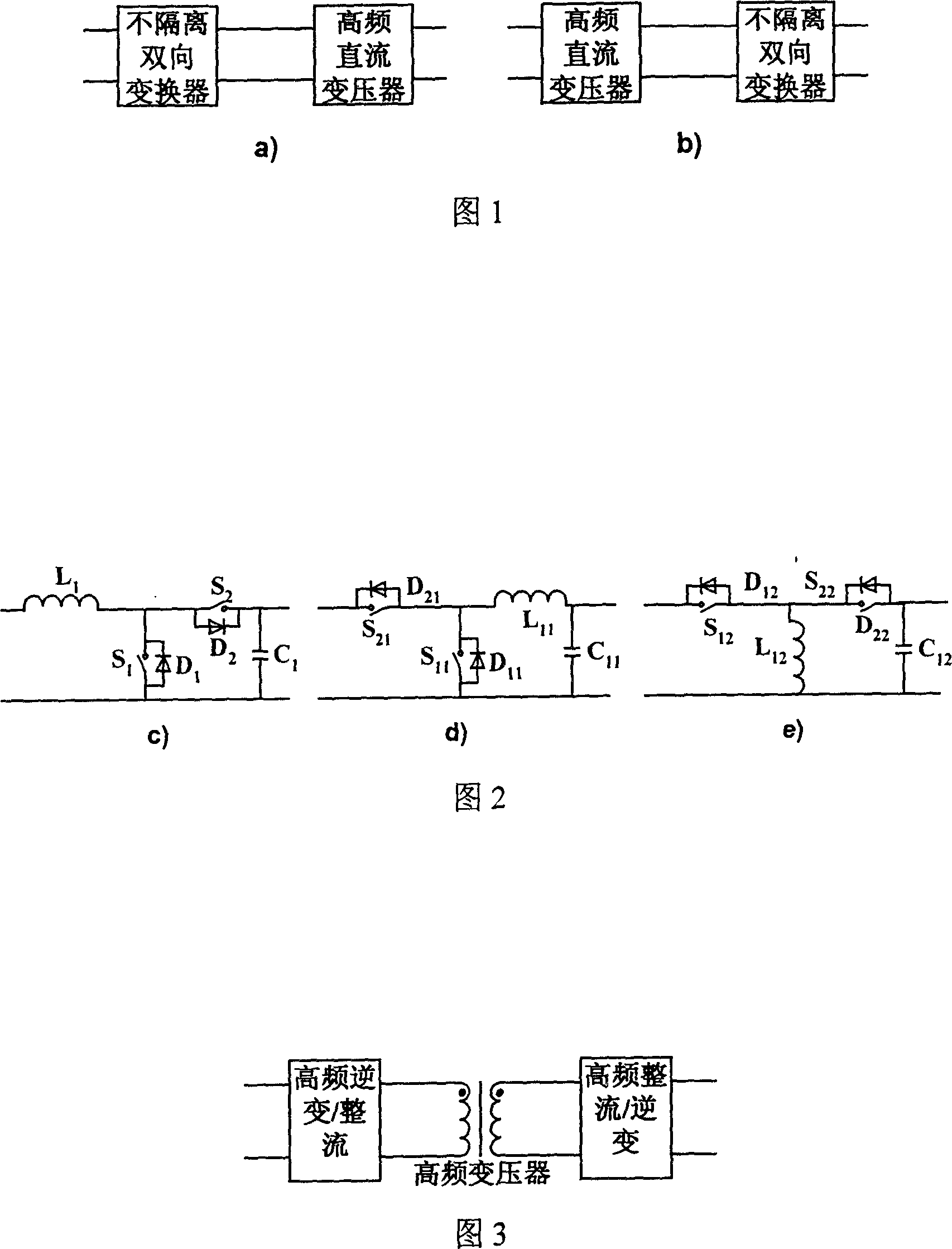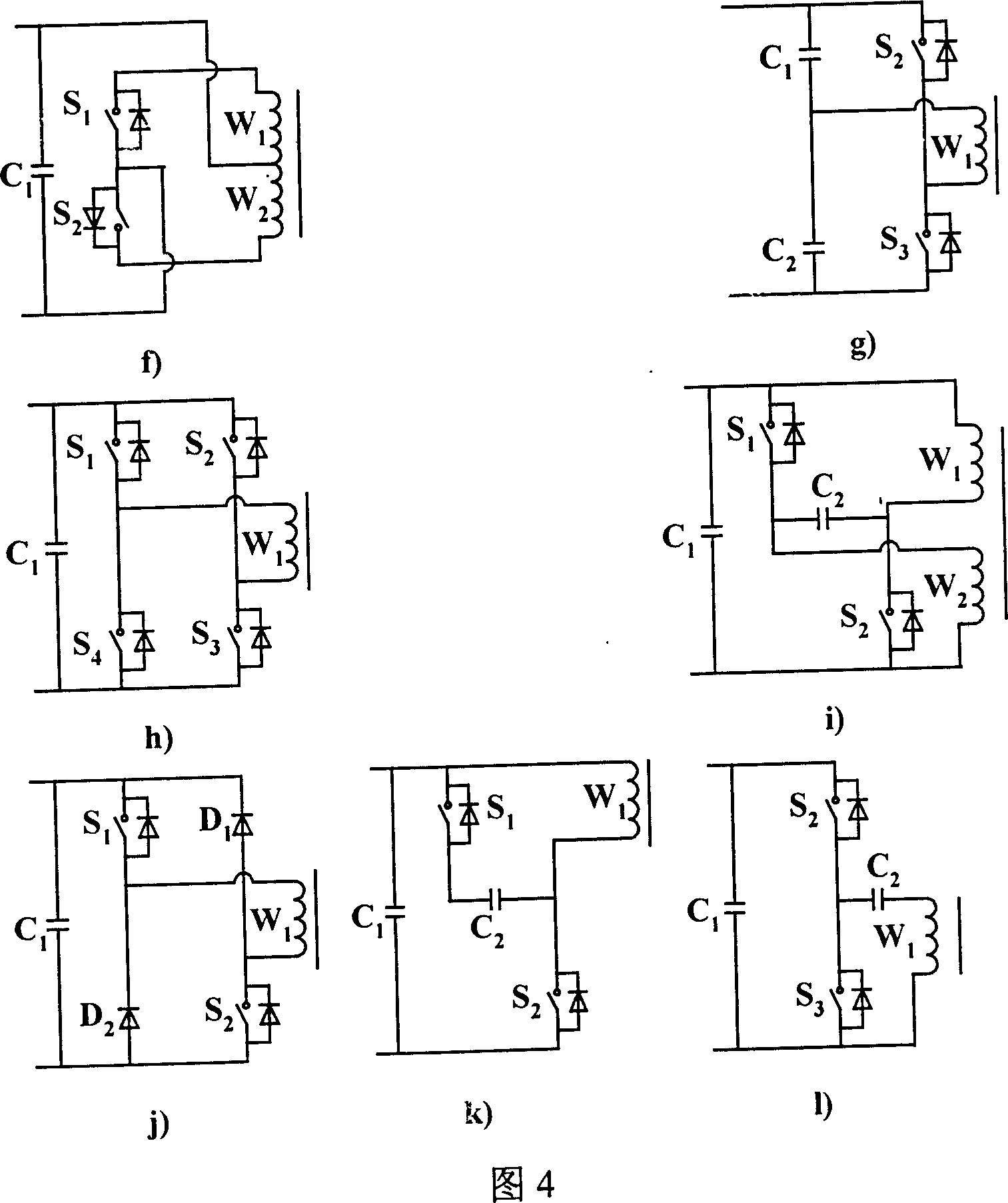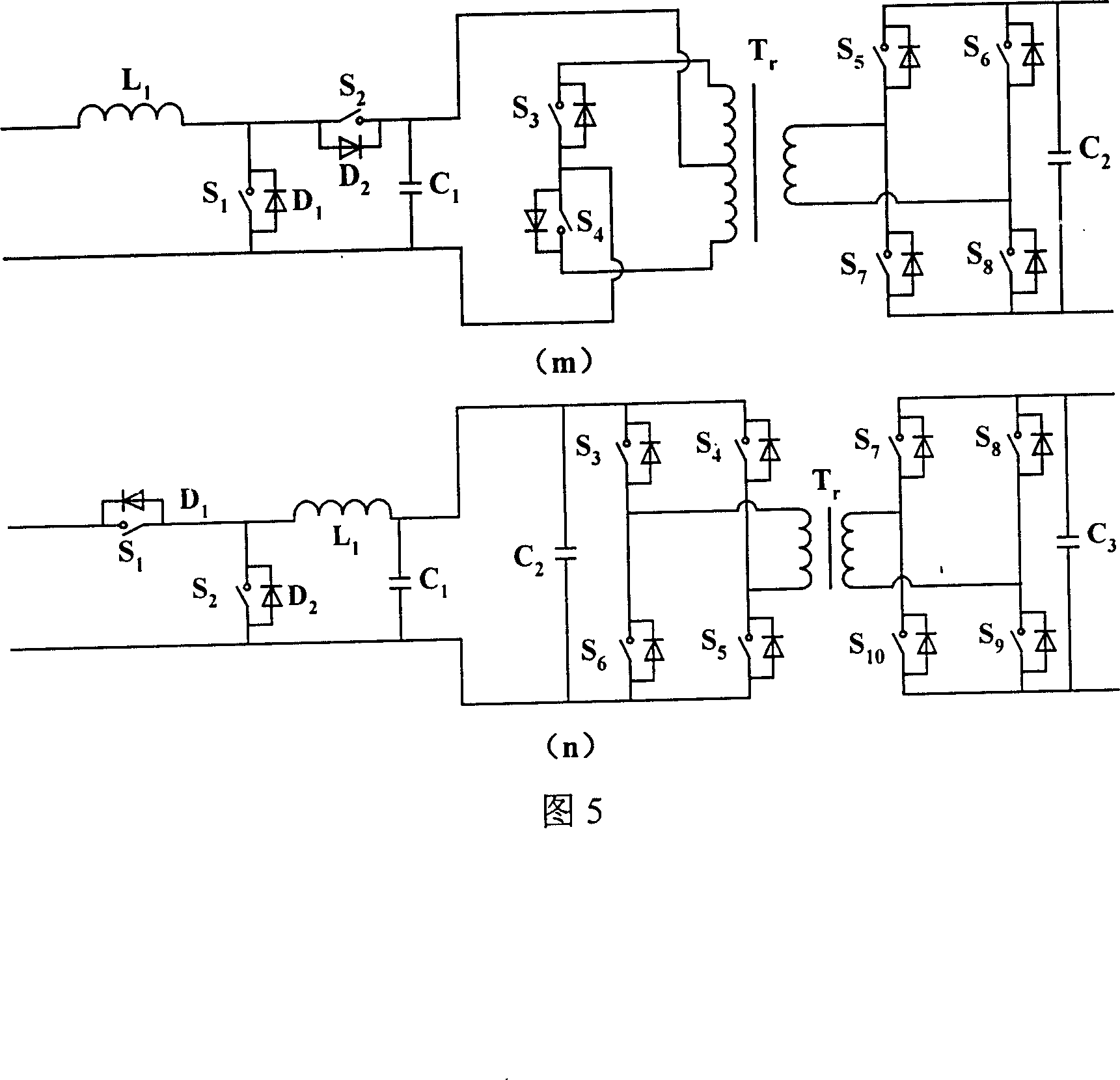Cascading bidirectional DC-DC converter
A DC-DC and converter technology, applied in the field of cascaded bidirectional DC-DC converters, can solve problems such as limited applications
- Summary
- Abstract
- Description
- Claims
- Application Information
AI Technical Summary
Problems solved by technology
Method used
Image
Examples
Embodiment Construction
[0023] Figure 1 is a structural block diagram of a cascaded bidirectional DC-DC converter. It can be seen from Figure 1 that the cascaded bidirectional DC-DC converter is formed by connecting a non-isolated bidirectional DC-DC converter and a high-frequency DC transformer. That is, the non-isolated bidirectional converter is cascaded with the high-frequency DC transformer, or conversely, the high-frequency DC transformer is cascaded with the non-isolated bidirectional converter.
[0024] The non-isolated bidirectional DC-DC converter can be a bidirectional boost converter shown in Figure (c) in Figure 2, a bidirectional buck converter circuit shown in Figure (d) and a bidirectional buck converter circuit shown in Figure (e) Bidirectional conversion topologies such as bidirectional buck-boost converters.
[0025] The composition of the high-frequency DC transformer is shown in Figure 3, that is, the high-frequency inverter / rectifier circuit is connected to the primary side of t...
PUM
 Login to View More
Login to View More Abstract
Description
Claims
Application Information
 Login to View More
Login to View More - R&D
- Intellectual Property
- Life Sciences
- Materials
- Tech Scout
- Unparalleled Data Quality
- Higher Quality Content
- 60% Fewer Hallucinations
Browse by: Latest US Patents, China's latest patents, Technical Efficacy Thesaurus, Application Domain, Technology Topic, Popular Technical Reports.
© 2025 PatSnap. All rights reserved.Legal|Privacy policy|Modern Slavery Act Transparency Statement|Sitemap|About US| Contact US: help@patsnap.com



